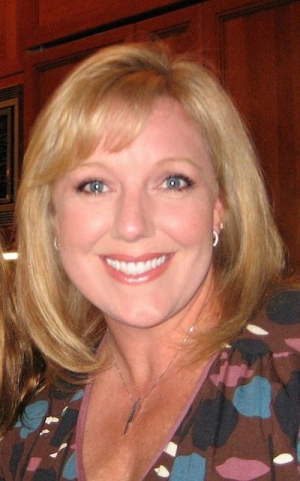Why This Alumna is Fighting for Women and Girls
February 19, 2014 / by Andri Antoniades- Alumni
Prostitution is often viewed as a victimless crime, but in some U.S. communities the average starting age for a girl in the industry can dip as low as 12 years old. The overwhelming majority of women in the commercial sex trade find themselves there as a result of either coercion or desperation.
But offering them a way out requires going well beyond the confines of legal assistance. Women with prostitution or sex trafficking backgrounds can successfully reintegrate back into society, and in the course of their recovery, social workers play a vital role.
Tricia Collins is one of them. "The way we perceive prostitution, the way we perceive the women themselves who are involved in prostitution, is backwards," she says. “They’re nothing like people think that they are."
A mother of five from Tampa, Fla., Collins recently received her master’s degree in social work from the University of Southern California through the school’s online MSW@USC program.
Well before Collins' graduate studies began, however, she found that much of her life was already focused on helping women and girls. In between stints as a stay-at-home mom and professional chef, volunteer work played a significant role in her life. Family vacations were spent volunteering in countries like South Africa, working with women and children affected by AIDS, and in Costa Rica, teaching women English so they could become more employable.
"I'm very drawn to marginalized or oppressed women's groups," Collins says, which is why she's also been a long-time volunteer for Created, a Tampa-based nonprofit helping victims of sexual exploitation reintegrate back into society. She even began her own group, Freedom Way, which provides educational outreach to her local community about its own sex trafficking industry.
"It was the volunteering that led me to doing social work as a profession," she explains. "So I decided to go back to school and make it more official."
Since then, through the community field placements required by the MSW@USC program, Collins has worked in adoptions for a Catholic charity and at a psychiatric facility counseling children in a rape crisis center, a position she’s decided to keep part-time even after having graduated last December.
In Florida, social workers who receive their master’s degrees are required to complete two years of post-graduate field experience in order to acquire a professional license. Collins will spend the bulk of hers working at a nearby hospital, trying to prevent child abuse before it starts by counseling mothers who have just delivered babies.
In the meantime, her volunteer work with organizations like Created will continue. Eventually she hopes to use her degree to influence government policy on sexual exploitation.
Social workers are in a unique position that not only allows them to work in a therapeutic capacity for specific groups of people, but also as consultants for legislators who seek out their expertise.
"You’re really in touch with populations so you know exactly what is happening, but you’re also advocating on a much higher level and using your own resources and your own connections to impact policy change."
But on a ground level, she also hopes to change the cultural misconceptions commonly held about women in the commercial sex trade. Collins says that in an industry run by men for men, the women who are entangled in it don't want or deserve to be there. And despite popular assumptions, they are capable of battling back from it.
"They can go on to be very good parents and productive members of society," she says. "They’re not the ruined women of our culture...They're worthy of respect."
This article originally appeared on TakePart.com.
To reference the work of our faculty online, we ask that you directly quote their work where possible and attribute it to "FACULTY NAME, a professor in the USC Suzanne Dworak-Peck School of Social Work” (LINK: https://dworakpeck.usc.edu)
